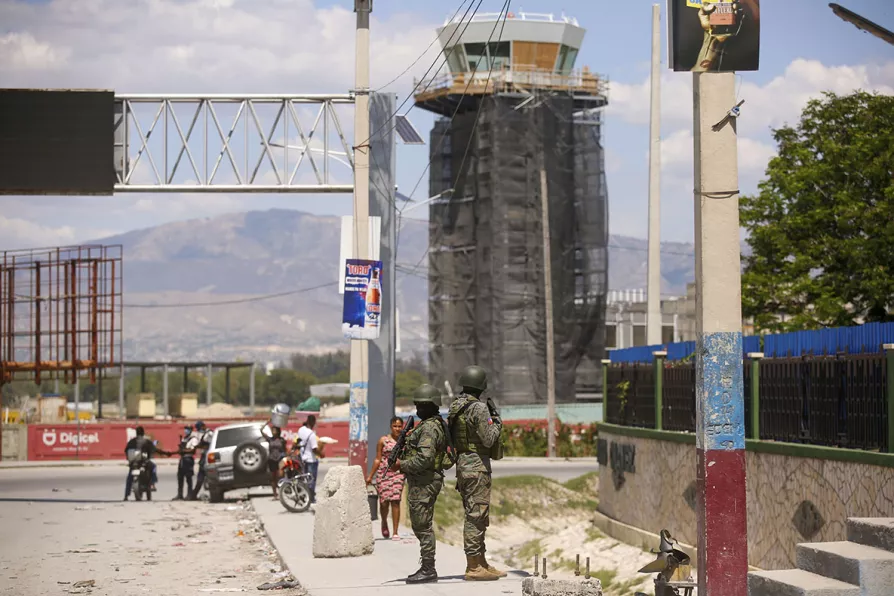
 Soldiers guard the entrance of the international airport in Port-au-Prince, Haiti, March 4, 2024
Soldiers guard the entrance of the international airport in Port-au-Prince, Haiti, March 4, 2024
HAITI’S unelected government said on Thursday that it was extending a state of emergency and nighttime curfew to try to curb violent gang attacks.
Attacks by gangs have paralysed the capital Port-au-Prince in a fierce battle for political power.
An initial three-day curfew was announced over the weekend, but gangs have continued to attack police stations and other state institutions at night as Haiti’s National Police struggles to contain the violence with limited staff and resources.

While Trump threatens to send Haitian gang leaders to El Salvador's terror prison, DANNY SHAW reveals how these paramilitary groups are merely symptoms of US-backed neocolonial rule — the real terrorists are the CIA and international actors arming desperate youth to traumatise an unarmed population













